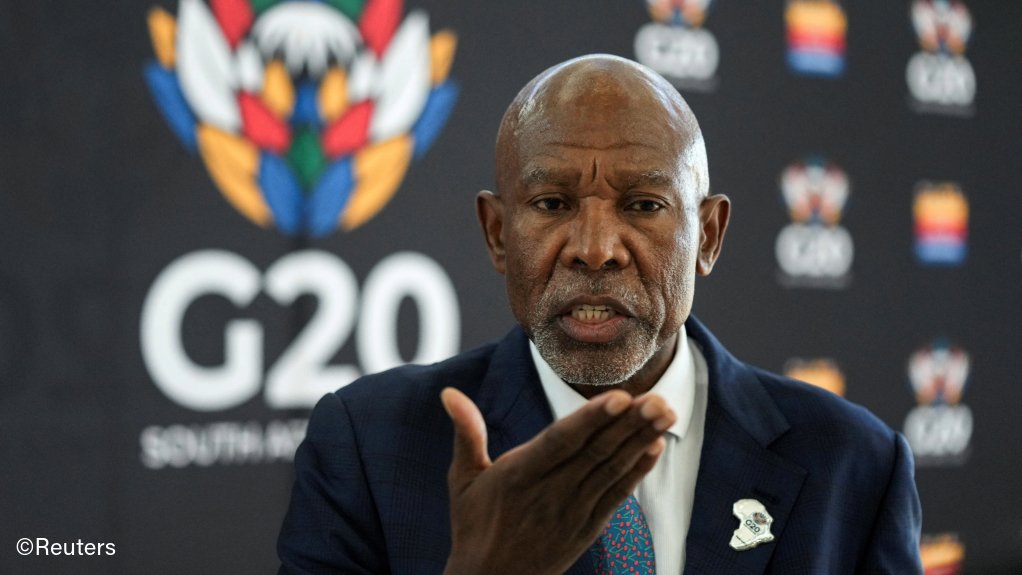South African central bank chief Lesetja Kganyago flagged that dollar depreciation because of US tariffs and deflation in China are clouding the outlook for inflation locally ahead of a rate-setting meeting at the end of the month.
After reneging on plans to impose sweeping duties on US trading partners earlier this year, President Donald Trump renewed his threat to institute them by Aug. 1 unless nations reach bilateral trade deals with it. The country is South Africa’s largest trading partner after China.
“The big thing about the tariffs is that they would impact on economic activity,” Kganyago told Bloomberg in an interview Tuesday on the sidelines of a meeting of the Group of 20 bloc of nations just outside South Africa’s eastern port city of Durban. “What you will face is that you might end up with inflation yourself.”
Price increases normally affect the nation that imposes tariffs, but if other countries start retaliating, “then you might have a general rise in prices globally,” he added.
On the other hand, China might be facing deflation, the governor said.
“China is a big manufacturer. It’s like a factory of the world. And the effect would be, or could be, that they would be exporting deflation or disinflation,” he said. That could have the impact of offsetting the higher prices caused by tariffs, Kganyago added.
“Economic relationships that we relied on to discern where we think the economy would go as a result of these developments are moving in directions that we were not used to, and that adds to the uncertainty,” he said.
The uncertainty has economists divided on what South Africa’s monetary policy committee may do when it gives its interest-rate decision on July 31. Some expect it to extend its easing cycle because inflation has been near or below the floor of the MPC’s target range of 3% to 6% for eight consecutive months. Others expect it to hold.
The committee cut the benchmark interest rate by 25 basis points to 7.25% in May.
Kganyago also warned that if implemented, tariffs are likely to impact the agricultural and automotive sectors, boding badly for economic activity.
EMAIL THIS ARTICLE SAVE THIS ARTICLE FEEDBACK
To subscribe email subscriptions@creamermedia.co.za or click here
To advertise email advertising@creamermedia.co.za or click here











